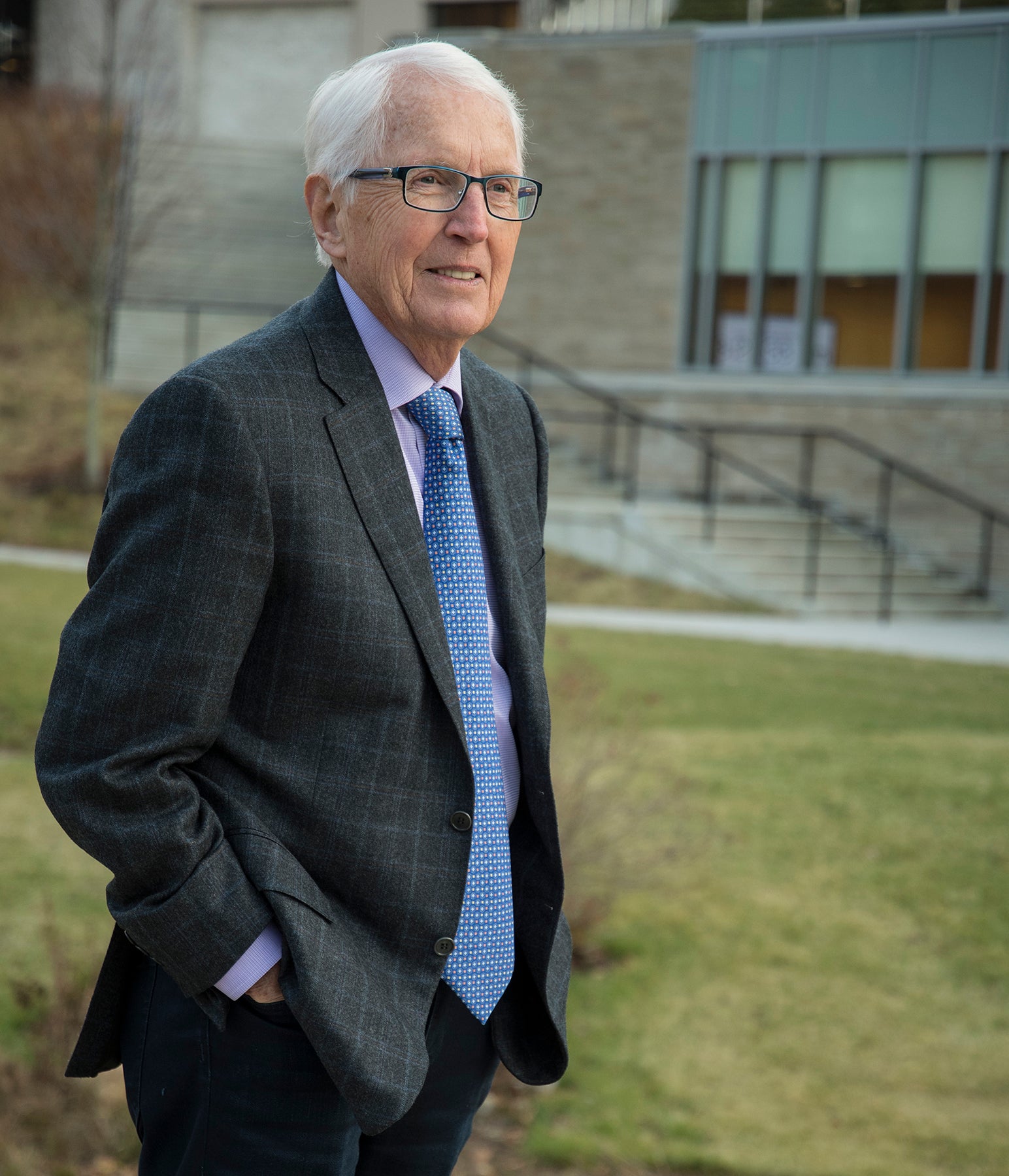KINGSTON, R.I. — July 20, 2020 — Yes, you should wear face coverings, practice social distancing and wash your hands frequently to reduce your exposure to COVID-19, but did you ever think improving your diet or reducing your alcohol consumption could also play a role in fighting the disease?
University of Rhode Island Professor of Psychology James O. Prochaska, founder of the Cancer Prevention Research Center, and one of the leading behavior change experts in the world, has an emphatic answer. And it’s based on 124 studies done all over the world.
Prochaska, inventor of the Transtheoretical Model of Behavior Change, said there are four behaviors that lead to the majority of chronic illnesses, which also make individuals more susceptible to infectious diseases: smoking, alcohol abuse, unhealthy eating and inadequate exercise. Add distress to what he calls the Big 4, and you have the perfect combination of factors that work against people’s ability to maintain good health.
Consider individuals whose biological age is 60. Some will have an immune system comparable to a healthy 40-year-old, while others will have one like an 80-year-old, Prochaska said. It turns out that the Big 4 and distress are major contributors to impaired immune systems, as well as chronic and often fatal diseases.
“During the current pandemic, the majority who are infected with COVID-19 have no symptoms, and another large group has mild symptoms,” Prochaska said. “Clearly, there are major differences in how their immune systems are functioning. Many people understandably feel distressed, anxious and afraid, in part because they feel helpless during this difficult time.”
He said they can help themselves and others by thinking about which behaviors they would like to address. Through research and development of his behavior change model, Prochaska has found that people do not take dramatic steps toward healthy behaviors, but instead go through these stages: precontemplation, contemplation, preparation, action and maintenance.
“We need to understand that people usually don’t take action right away, so we have to help them move in that direction,” he said.
“We need to help people see that when they start or when they have lapses, they can commit to getting back to healthy eating and consuming less alcohol,” Prochaska said. “But we have to be kind and considerate and help people realize that changing these behaviors can prevent them from getting chronic illness, as well as the next virus.”
Prochaska said there are opportunities for simple changes. More people are working from home so they no longer lose time commuting to the office. Maybe they can use that time to take a walk, bike ride or exercise at home.
“These are small steps, as people move from one stage to the next, but people become demoralized, so reinforcing the benefits of such behavior is critical,” Prochaska said. “If you improve your behavior, you are getting two for the price of one–improved immunity and reduction in risk for chronic illness.”
Prochaska said that health is being free from disease. “Once you get one chronic disease, you are more likely to get more. These behaviors also enhance multiple domains of well-being, for example, emotional, social and work well-being.”
Prochaska and his wife Janice Prochaska are conducting video conferences with health counselors and coaches around the world to help their clients and patients. He added that many organizations devoted to helping people improve their health and well-being, battle depression and anxiety have been following the research described in the book, “Changing to Thrive,” co-authored by Prochaska and Janice, founder of Pro-Change, which has produced award-winning, digitally-based programs that set new standards for impacts on the biggest threats to the health and well-being of a broad range of populations.
“We understand that change is challenging, especially during stressful times like these,” Prohaska said. “My Achilles heel is diet, and so Janice had us meet with a nutritionist. At first, I realized all I could eat was things I don’t like. But I did break my sugar addiction, and I had to take ice cream and potato chips off the grocery list. Without even trying hard, I lost 10 pounds, and 2 inches off my waist. It is possible to change.”

